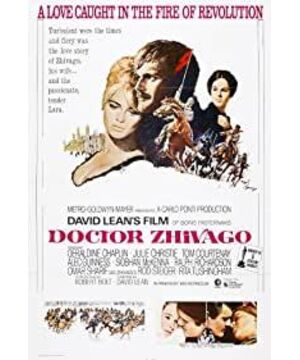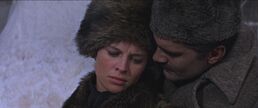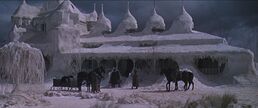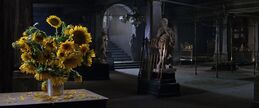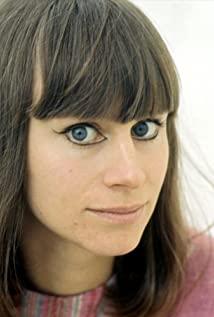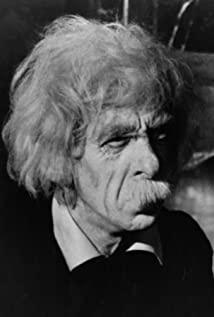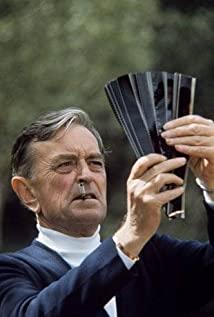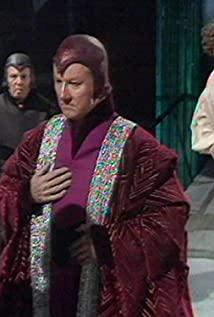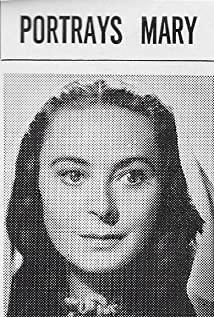In the last years of Tsarist Russia, Zivag, a young doctor with a petty-bourgeois sentiment in Moscow, was weak, quiet and had a sense of justice. He had a noble, well-educated, virtuous wife, and a happy family. In that turbulent era, he met Lana, a young girl who was seduced by a nobleman, and witnessed the privacy of Lana and the middle-aged aristocrat.
When World War I started, Chiwag was drafted into the army as a military doctor. Lana and her young husband, who had a revolutionary idea shortly after their marriage, also joined the army. One went to the front and was killed on the battlefield; the other worked as a nurse, working with Ziwag. At the end of the war, the October Revolution took place in Tsarist Russia, and the two who already had a good impression of each other broke up and went back to their own homes.
Qiwage's aristocratic family was destroyed by the revolutionaries and his house was confiscated. He took his wife, children, and old father on a train to the west to escape, and settled down temporarily outside a small town called Yunvting in the Ural Mountains. In the town Zivag accidentally met Lana, and their feelings really burst out. At this time, there were rumors that the little husband of that year escaped from death and joined the revolution as a general.
Ziwage is constantly running around in and out of town, his conscience and emotion are intertwined, and his spirit is tortured. His wife's second pregnancy made him make up his mind, and he went to town to completely break up his affair with Lanara. On the way back, he was held hostage by the revolutionary army, who needed field doctors.
A few years later, Qiwage seized the opportunity and fled back to the Jade Girl Pavilion from thousands of miles away, but the whereabouts of his wife and family were gone. He had no choice but to go to Lana again, and learned that his wife and children had been driven out of Russia by the revolutionaries, and that his old father had died.
Ziwage and Lana live together and gradually feel at home. Lana understands herself better than her wife does, and inspires the poetic talent that Ziwage had in her youth. A book of poems is born to Lana, who is pregnant with the doctor's child.
The revolutionary situation was changing rapidly, and the little husband general became a counter-revolutionary. Lana was nominally the wife of the counter-revolutionary, and her movements were monitored. On a snowy night, a middle-aged aristocrat who had not shown up for many years found the two people's residence. Having turned into a revolutionary government official, out of guilt for his actions, he took the initiative to ask Lana to be taken out of danger. Lana was reluctant to be separated from Ziwag, but Ziwag firmly let the nobles take Lana away.
Another few years passed, and Zivag seemed to see Lana on the streets of Moscow. He ran to catch up, but his body was exhausted and he died suddenly on the street. Their children are in remote Siberia. As a female worker who built a dam, they have forgotten their childhood past, and only the book of poems is still circulating.
I don't know why I liked this long movie, and I finished watching it before I knew it. This is a work that expresses personal emotions and human nature against the backdrop of the turbulent social background. The original is a novel, and the movie has been edited a lot. The plot and action are nothing special, unlike today's blockbusters, the photography and stunts are very grand and flamboyant. In three hours to express the spirit of the original, the film has done.
Maybe it's because my character is close to the protagonist, and I can really understand the doctor's inner feelings. The yearning for peace and normal social order, and the disgust for turmoil and bloodshed. Zivag is not perfect, not the embodiment of justice, he is a mortal with flesh and blood, and more of a human flaw; he really exists in that era, and his heart is full of desire for life, but he can only accept fate. At the mercy. The whole film has no clear positive and negative roles, and the fate and behavior of the characters are dominated by major events. From a historical point of view, the revolution of that era is difficult to define, let alone a small person.
There may be several factors that attract me to the film. One is acting. All the actors acted well, nothing felt jerky or wrong. Several emotional scenes, no gimmicks or bed shots, clean and natural, delicate and simple. In particular, Qiwage's wife, who is benevolent and righteous, bears humiliation and bears heavy burdens, and radiates light like the Virgin Mary. The second is the scene. In the films of the 1960s, there was no high-tech and no big scenes, but the atmosphere of the revolution and the scenes of war were all shown, and they were all real. The third is music. The unnamed theme music runs throughout, and the rhythm of the music matches the scene very well. This should be a world famous song. Up to now, I can still hear this piece of music on many occasions, as if it has become a ballroom dance piece. The fourth is photography. The film begins with the wind in the Russian steppe, the scene of a noble gathering in the middle, the atmosphere of the snow suppressing the parade, the vast grassland outside the town in spring, the heavy snow in Russia in winter, the warmth of the town's hut, and the howling of wolves on the ice field on a snowy night. is just right. The fifth is rhythm. The whole film is soothing, even a little slow. But I didn't get bored watching it. It may be the natural unfolding of the plot, without redundant links and scenes, it feels natural.
Having said so much, it seems that the point has not yet been reached, and it may be that the plot is attractive. To win multiple Oscars, the storyline must have contributed. I've watched it five times and it's still not annoying. Find the original and read it. The dialogue in it is too wordy, and there is no concise movie. The screenwriter is still very important.
I like the narration in it, it is very philosophical: in that fiery era, the role of the individual was dissolved, and he went to the slaughterhouse for a seemingly lofty ideal, and was swallowed up in batches. When inclination turns into fanaticism, destruction is not far away. However, most of the martyrs were little people who had nothing to do with historical facts, engulfed in the torrent of history and engulfed together. Struggle is futile, resistance is useless, especially sadly, when everything becomes history, it becomes a whitewashed story. True and false, right and wrong, good and evil, false and real, there is no way to judge, maybe there is no difference at all. Whoever holds the pen that writes history rules the world at this moment. Personal life is not important, history has been obliterated. All tears and laughter, love and hate, anger, struggle, regret, and repentance are all silent, silent sighs behind the history.
The following three poems are taken from the original work, and I prefer them. Hope you like it too.
muddy road in spring
The horizon is burning with the afterglow of the sunset, and
on the muddy road in the deserted pine forest,
towards the farmland in the Ural in the distance, the
rider kicks in a panic.
The slow-walking horses swayed,
as if to meet the sound of the shoe,
and the spring water that was hoaring at night,
hurried to catch up all the way.
Let go of the rope in his hand for a while, the
rider let the horse walk slowly, and the
spring flood made a dull roar,
approaching the road beside him.
As if someone was laughing and crying,
it turned out that the gravel under the hoof collided,
and the tree stump that was lifted up by the roots was
involved in the whirlpool.
The burned out sunset glowed in the afterglow, setting off the
inky darkness of the distant mountains and trees,
just like the ringing of the alarm bell, and the
night camp on the branches sang happily.
There is a lonely weeping willow by the valley, leaning
down and lowering its head covered with branches and leaves ; What kind of lover's worries are these fiery feelings and conduct for? Filling the muzzle island of thunder bullets with oil, want to seek revenge in the jungle? It turned out to be covered in dirt, walking out of the hiding ditch of political fugitives, towards friends on horseback or on foot, towards the guerrilla whistle.
The sky, the earth, the jungle, and Tianchou
have both captured the rarity of this sound,
which contains confusion and pain.
Happiness is accompanied by sorrow.
Hops
Ivy entwines firecracker willow,
seeking shelter from the rain under the tree.
A trench coat is draped over my shoulders, and
my strong hands are hugging you.
It turned out that this was not an ivy,
but a clump of dense hops.
Better yet, let's open the cape and
let it flatten loosely under us.
On a sunny day in early autumn,
gooseberry leaves grow thick and luxuriant,
people laugh at the doors and windows at home,
housewives chop up salt and add seasonings, and the sprouts of
cloves are soaked in marinade.
The woods seemed to be laughing,
throwing the laughter up the hillside,
where the camphor trees were scorched by the sun,
as if scorched by the heat of a yellow fire.
There is a small road going down to the valley,
and there are many dry water and rotten trees.
The stagnant water loves this early autumn and
stores it all in one place.
The world was originally simple and clear, and it was by no means confused as imagined
by wise people . Once everything in front of you burns up,
Eyes do not need to be lost in vain,
the white autumn fog is boundless, but
it sticks to the window like spider silk.
The path leading from the fence of the courtyard
disappeared into the depths of a forest. The
laughter in the courtyard was accompanied by the busy housework, and
the same laughter and joy were in the distance.
(The three-dimensional painting of Yadang was written at 5:00 am on January 30, 2009)
View more about Doctor Zhivago reviews


